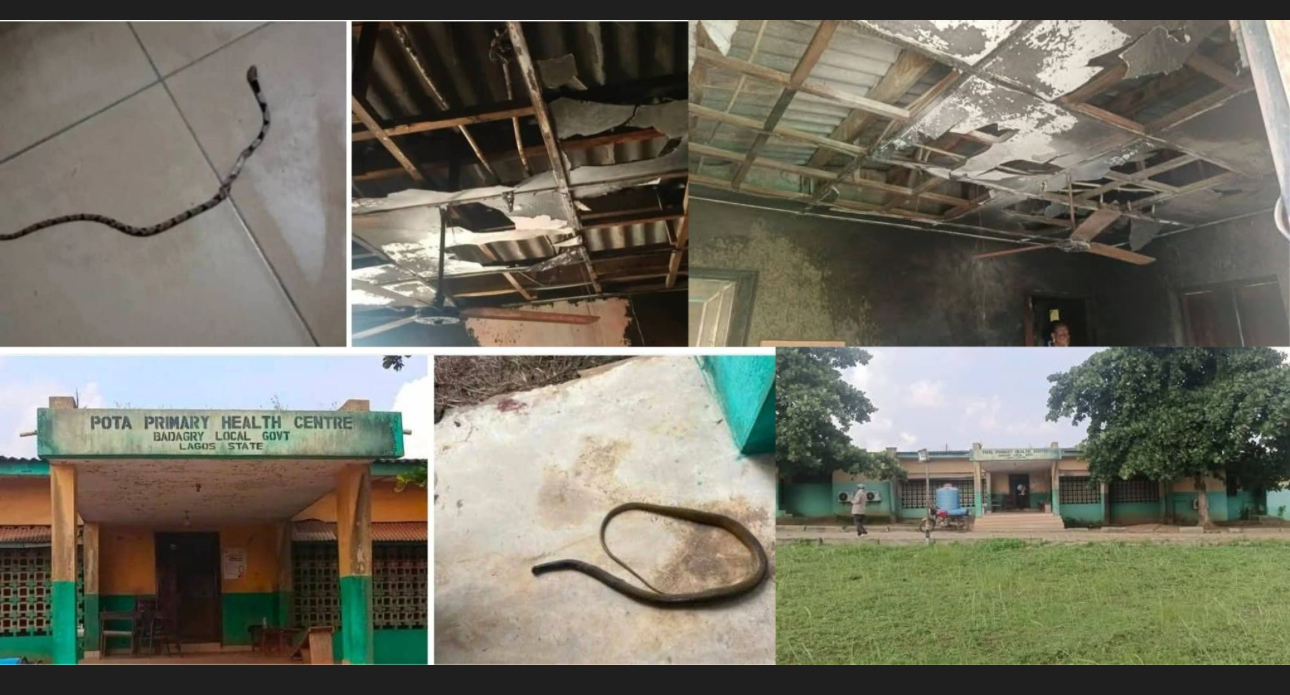Snakes Invade Lagos Health Centre as Expectant Mothers Deliver Babies by Candlelight

A primary health centre in Lagos State has come under scrutiny after alarming reports surfaced showing the facility overrun by snakes and operating in near-total darkness.
Located in the Afromedia area of Okokomaiko, the health centre—intended to serve as a lifeline for maternal and child healthcare—is now being described by residents as a hazard to life.
Photos from within the facility reveal shocking conditions: cracked and gaping ceilings, structural decay, exposed wiring, and snakes reportedly spotted slithering through patient areas.
What is even more disturbing, locals say, is that women in labour are often forced to deliver babies under candlelight or by the weak glow of mobile phone flashlights, due to persistent power outages and lack of a generator.
“This facility is falling apart. At night, there’s no light, and the ceiling is open to the sky. Snakes crawl in like they belong here,” said one resident. “Imagine a woman in labour here—it’s horrifying.”
Health workers, residents, and patients have all decried the state of the centre, blaming years of government neglect. Despite the clinic’s importance to the community, it reportedly lacks even the most basic medical supplies and is without a reliable power source. Rainwater seeps into the building during storms, worsening the already dire condition of the maternity ward.
Community leaders have called on the Lagos State Government to take immediate action, warning that the centre’s current state poses a severe threat to both patients and staff.
Public outrage has grown, especially on social media, with many questioning how such decay can persist in one of Nigeria’s wealthiest and most urbanised states.
“Lagos talks about development and infrastructure, but here, women are giving birth with snakes nearby and no light. It’s like something out of a nightmare,” said another concerned resident.
As of this report, there has been no formal response from the Lagos State Ministry of Health, and the facility remains open, continuing to receive patients in spite of the dangers.
The unfolding situation has reignited debate over healthcare inequality and the urgent need to audit and upgrade primary health centres across the state, particularly in densely populated but underserved areas.









